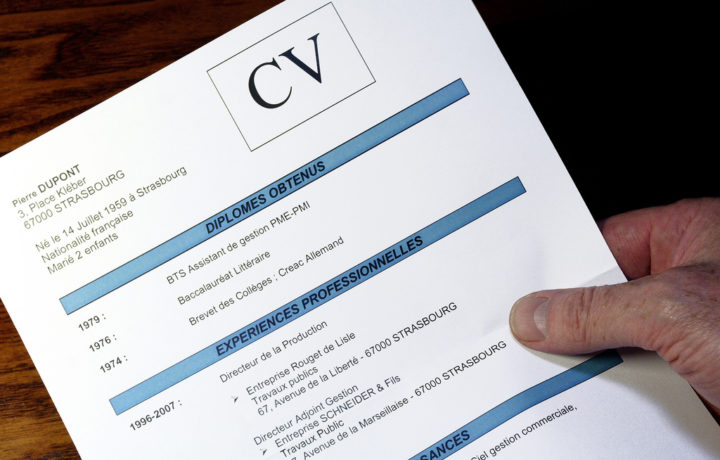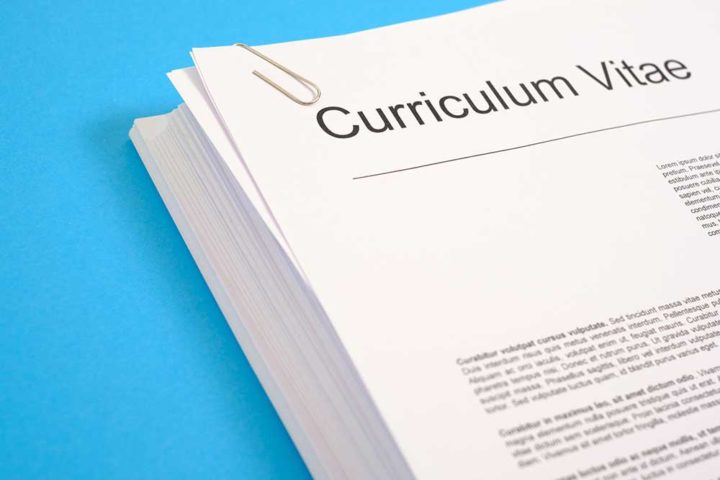Marie Pavlou explains how to write a proper CV.
In nowadays, there is a lot of competition and the resume plays a vital role in an application. You need to know that a well-written CV is the first impression of the manager or the interview towards you.

What is a CV?
The Curriculum Vitae is the resume of your personal information, your work experience, your skills, your education and your achievements. It is used to apply for open positions and to present yourself as per your background. There are different types of CV:
- A document in word file
- A PDF document. You can create your résumé in a word file document and then save it in PDF
- Online CV
- Infographic CV: this type of CV is used from individuals who have a creative background e.g. designers, architects, business development, etc.
There are a lot of different ways to build a CV, however, it needs to contain important information and also to have a structure.
Keep in mind that some of the companies have their own application forms because they have their own structure in order to check the background and the skills of each candidate. In that case, the application form replaces the CV.
What information should I write in the CV?
Personal Information
- Name – surname
- Phone number
- Address
- Date of birth
- Email: personal; not your current work email
Work Experience
You need to write the dates and the name of each employer, as well as, the responsibilities you had in the job position.
Tip: use bullets as it’s tidier and include keywords for your position thus it is easier for the reader to identify the skills you use for this role and to combine them with the position you apply.

Educational Background & Qualifications
In that part of your résumé, you need to write the Name of the Institutions including your Diploma and the exact dates.
Tip: some of my clients are asking If it’s important to mention the school in the CV. It’s important to write the name and the dates of your high school, don’t include the primary school because it’s obvious that If you finished the high school you went to primary school as well.
Professional Skills
Your professional skills should be always written at the top of the first page of your CV. They need to be tidy in an easy way for your reader to read them and to understand If you are qualified or not for the position.
In nowadays, technology has evolved a lot in our daily lives and it is very essential. There are so many companies that need computer skills and in case you are not familiar with this experience or this kind of skills you need to start a course.
The computer skills can be located on the last page of your CV. You need to write the name of the software you have worked with, to mention the Microsoft Office, etc. In case you have more technical experience in the computer skills then you need to write more as well e.g. C#, Net, CSS, etc. However, in case you have experience as a programmer you need to mention the programming languages on the part of your work experience.

Languages
At this part of your CV you need to put down the languages you speak and the level (e.g.):
- French – native
- English – fluently
or
Mention the European exams you held: e.g. DELF B2-French and O’ levels & A’ Levels, GCEs, IELTS, etc. for English.
Interests and Achievements
In that area of your resume, you have to include your personal interests and hobbies.
Furthermore, in case you are a part of any association or professional bodies, it would be useful for your personal brand to write them down and to include your membership status and your responsibilities.
The CV should be maximum 2-3 pages and your spelling and grammar must be correctly used so it can be clearly laid out.
 The article by Marie Pavlou.
The article by Marie Pavlou.
Feel free to contact Marie Pavlou via e-mail and follow on LinkedIn.
Follow Cyprus Job Market on Facebook or in LinkedIn.




